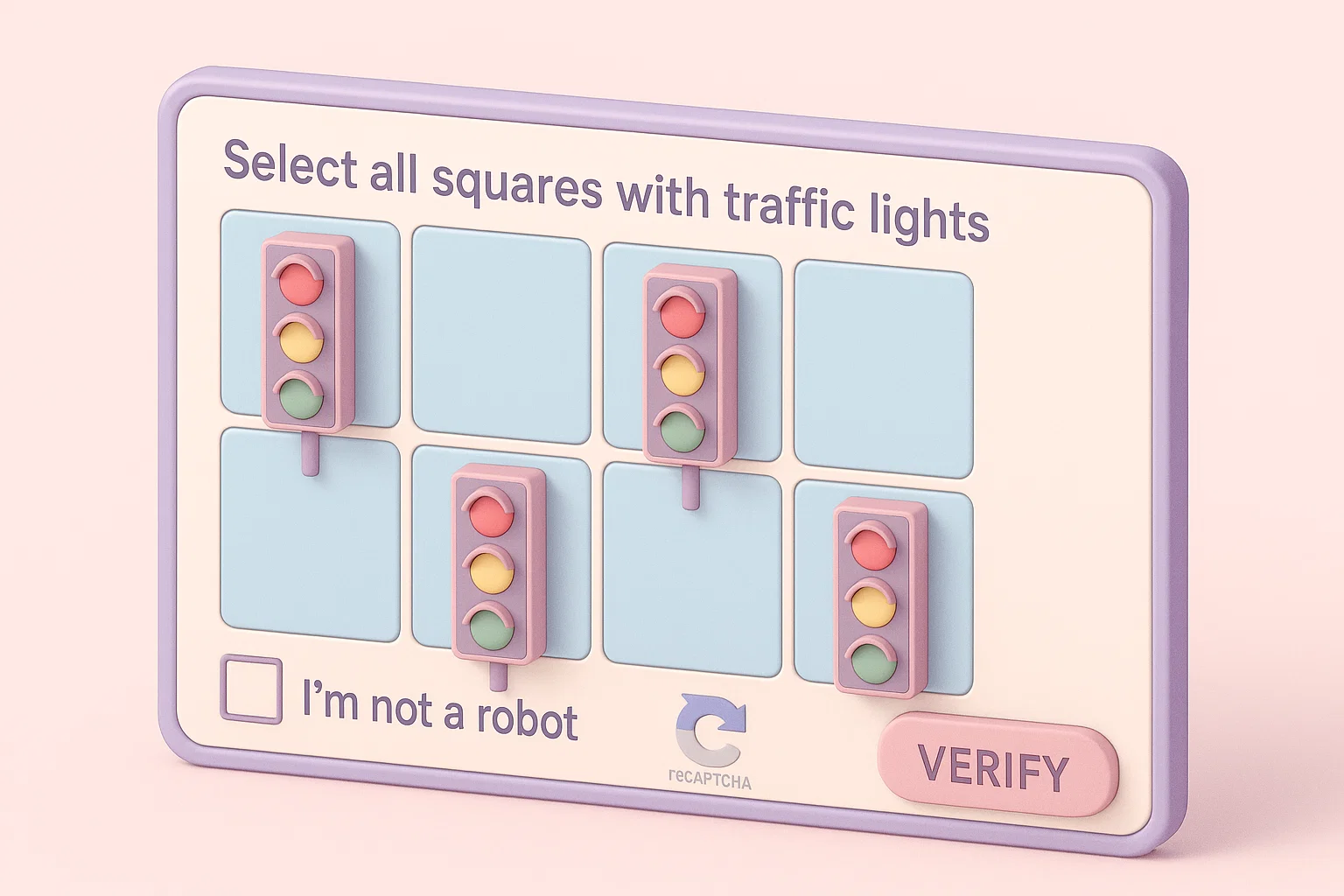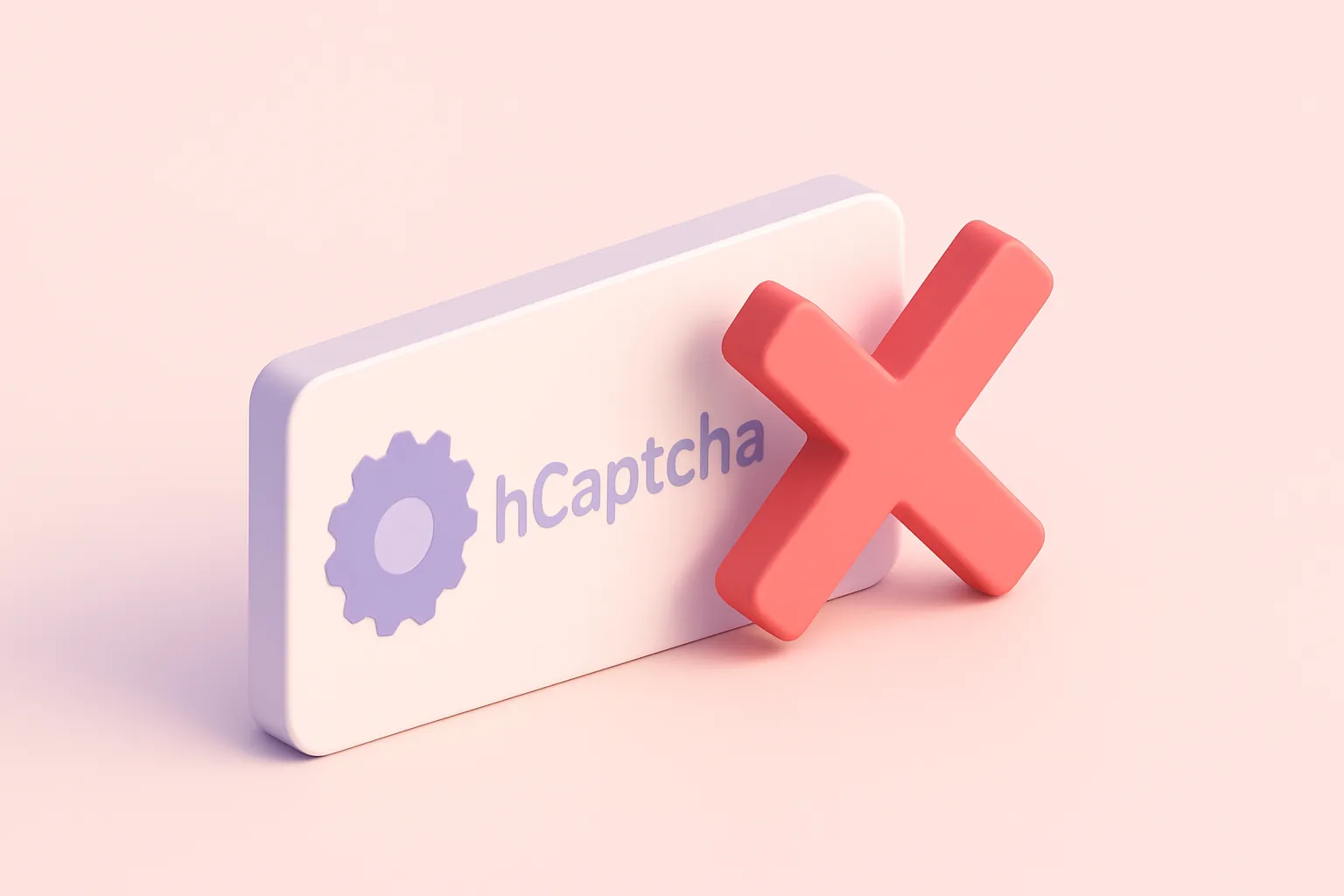hCaptcha and GDPR - Privacy Claims Warrant Scrutiny
hCaptcha and GDPR: Why the Privacy Claims Warrant Scrutiny
Published: April 22, 2025
CAPTCHA services are a necessary evil for many websites, acting as gatekeepers against bots. With many people looking for alternatives to reCAPTCHA, which is often criticised for its data collection practices, hCaptcha markets itself as a privacy-focused solution. But how well do these privacy claims hold up under the strict requirements of the General Data Protection Regulation (GDPR)?
While hCaptcha positions itself as prioritising user privacy, a closer look reveals several potential friction points with GDPR principles. This article demonstrates technical and legal arguments suggesting hCaptcha may not be the straightforward GDPR-compliant solution some might hope for.
Challenges with International Data Transfers and Schrems II
A core tenet of GDPR is restricting personal data transfers outside the European Economic Area (EEA) unless the recipient country ensures an adequate level of protection. hCaptcha, operated by the US-based company Intuition Machines, inherently falls under this scrutiny.
The landscape for EU-US data transfers has been turbulent. The Court of Justice of the European Union (CJEU) invalidated the previous EU-US Privacy Shield framework in the "Schrems II" ruling, citing concerns about US surveillance laws potentially overriding privacy protection.
hCaptcha states it adheres to the newer EU-U.S. Data Privacy Framework (DPF) Principles [in their GDPR](https://www.hcaptcha.com/[gdpr](/glossary/terms/gdpr/)) and privacy statements, and also utilises Standard Contractual Clauses (SCCs) as legal mechanisms for data transfer. However, challenges remain:
- DPF Adequacy: The DPF itself is facing potential legal challenges, with ongoing debate about whether it truly addresses the fundamental concerns raised by Schrems II. Some argue US surveillance laws (like FISA 702, CLOUD Act) make any US-based processing potentially incompatible with GDPR's protection goals for EU citizens.
- SCC Effectiveness: Post-Schrems II, SCCs require a case-by-case assessment verifying that the recipient country's laws don't undermine the contractual protections. hCaptcha mentions efforts to minimise or eliminate transfers depending on customer configuration, but transparency on when and how this occurs is crucial for validating compliance.
- Processing Location: While hCaptcha uses global regional servers, metadata can still be processed in the EU and US, and ultimately, the US base of Intuition Machines implies potential US data access.
Consent: Truly Explicit and Freely Given?
GDPR generally requires explicit, informed, and freely given consent for processing personal data, especially for non-essential cookies and data transfers lacking an adequacy decision.
- Cookie Consent: [hCaptcha claims its primary anti-bot cookies are "consent-exempt"](https://wordpress.org/support/topic/does-hcaptcha-require-cookie-consent/), this being a technical requirement for many services. However, its cookie policy also details cookies for security and potentially statistical purposes. If these go beyond strict necessity for the security function (e.g., analytics, even if first-party), they likely require explicit consent under GDPR and the ePrivacy Directive. Privacy-focused alternatives like Procaptcha demonstrate that truly cookie-less operation is feasible.
- Forced Consent: A significant concern arises when hCaptcha is mandatory for accessing a service (e.g., login, registration). If a user must interact with hCaptcha (and thus agree to its data processing) to proceed, consent isn't freely given, potentially violating a core GDPR principle. Regulatory bodies like [France's CNIL have fined companies for using reCAPTCHA without valid consent](/blog/google-privacy-nightmare/), setting a precedent relevant to hCaptcha. Simply having a privacy policy link might not suffice; active, explicit consent might be needed before the hCaptcha widget loads and processes data.
Transparency, Data Usage, and Purpose Limitation
GDPR mandates clear information (Articles 13 & 14) about what data is collected, why, the legal basis, retention periods, and third-party sharing.
- Data Collected: hCaptcha collects IP addresses, interaction timing, mouse movements, browser data, hardware data, gyroscopic data and more.
- Purpose Concerns: While the stated purpose is bot detection, hCaptcha's parent company, Intuition Machines, is involved in data labeling services. This raises questions about whether user interaction data, even if anonymised, contributes to training datasets beyond the immediate security need. This could conflict with GDPR's purpose limitation principle.
- Transparency Gaps: While hCaptcha provides a privacy policy, details on specific data retention periods for non-enterprise users and the precise anonymisation techniques used are opaque. This lack of specificity makes it impossible for website operators and users to fully assess the privacy impact. Website operators embedding hCaptcha remain responsible for informing their users adequately about this third-party data processing.
Legitimate Interest is a Debatable Legal Basis
hCaptcha cites "legitimate interest" in securing systems against bots as a legal basis for processing. However, this requires a balancing act: the controller's interest must not be overridden by the data subject's fundamental rights and freedoms.
If data collection extends beyond strict security necessity (e.g., for broader analytics or contributing to Intuition Machines' other services), relying solely on legitimate interest becomes questionable, especially given GDPR's data minimisation principle. Data protection authorities like Bavaria's BayLDA have advised caution and seeking alternatives for US-based CAPTCHAs, signaling skepticism towards the legitimate interest claim in this context.
How Does hCaptcha Compare to Procaptcha on GDPR?
| Feature | hCaptcha | Prosopo Procaptcha |
|---|---|---|
| Data Collection | IP, interaction data, browser data, hardware data, cookies and more | Minimal and anonymised: Privacy-by-design approach, only essential challenge data collected |
| Cookie Usage | Yes, for tracking/ID | No cookies required - completely cookie-free operation |
| GDPR Compliance Stance | Claims friendly, relies on DPF/SCCs | Built for GDPR from ground up, full compliance without exceptions, no reliance on data transfer mechanisms |
| Processing Location | US-based company, global servers, potential US transfer | Fully EU-based processing, no data transfers outside EU |
| User Experience | Often seen as difficult/frequent challenges | Frictionless and invisible options, accessible design, fewer challenges with higher accuracy and lower false positives |
While hCaptcha presents itself as more privacy-aware than reCAPTCHA, Prosopo Procaptcha represents a fundamental shift in CAPTCHA design with privacy at its core. Unlike alternatives that attempt to retrofit privacy onto existing models, Procaptcha was engineered from first principles to eliminate GDPR concerns while maintaining strong security.
tl;dr - Proceed with Caution if using hCaptcha
Despite its positioning, hCaptcha presents several significant GDPR compliance risks:
- Data Transfers: Reliance on the fragile DPF and the complexities of SCCs for US transfers remain significant concerns post-Schrems II.
- Consent: Obtaining explicit, freely given consent for cookie usage and processing, especially when mandatory, is critical and potentially complex to implement correctly.
- Transparency & Purpose: Ambiguity around data retention, anonymisation specifics, and potential secondary data usage by Intuition Machines warrants caution.
- Legitimate Interest: This legal basis may be insufficient if data processing exceeds strict security needs.
Website operators using or considering hCaptcha should perform thorough due diligence. This involves:
- Scrutinizing hCaptcha's Privacy Policy and DPA: Understand the exact data flows, retention, and processing locations.
- Evaluating the Legal Basis: Legitimate interest may not be sufficient for your implementation. Explicit consent is reccomended with hCaptcha implementations.
- Implementing Consent Mechanisms: Ensure a compliant consent banner/process is in place before hCaptcha loads.
- Updating Your Privacy Policy: Clearly inform users about hCaptcha's data processing on your site.
- Considering Alternatives: Consider using Procaptcha, particularly if minimising GDPR risk and maximising user privacy are top priorities.
hCaptcha might be a step away from reCAPTCHA's model, but its US roots and data practices mean it's not automatically a safe harbor for GDPR compliance. Careful assessment is essential.
Migrate from hCaptcha
We're happy to help you migrate from hCaptcha to Prosopo. If you want to ringfence your data in the EU with a GDPR-friendly CAPTCHA, please get in touch below.
Related Posts to hCaptcha and GDPR - Privacy Claims Warrant Scrutiny

What is the best value CAPTCHA in 2024?
Sat, 13 Apr 2024

How Do Scalpers Get Tickets Before Selling Them
Wed, 09 Apr 2025

Why am I clicking traffic lights? The reason Google reCAPTCHA frustrates users
Fri, 15 Mar 2024

How to Integrate CAPTCHA Without Violating User Rights
Sat, 12 Apr 2025

Procaptcha vs Friendly Captcha - Why Real Bot Protection Matters in 2026
Wed, 13 Aug 2025

How to Add CAPTCHA to Fastly CDN
Tue, 20 Jan 2026

